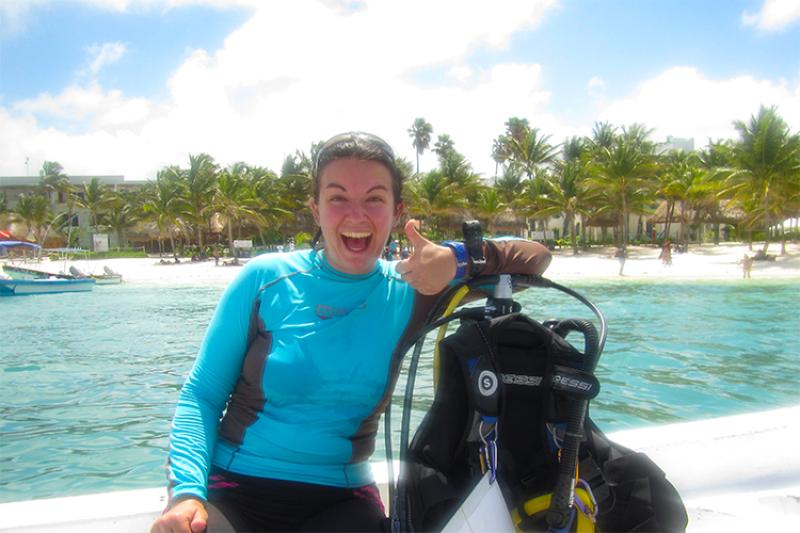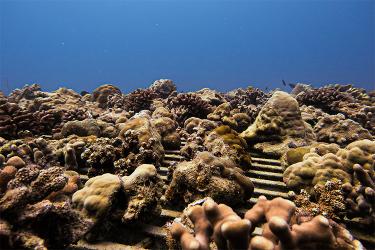Catie Alves is a social scientist for the Northeast Fisheries Science Center’s Social Science Branch. Her home base is at our Narragansett Lab in Narragansett, Rhode Island.
Can you tell us a little about yourself—where you grew up, how you got interested in science, where you went to college?
I grew up in Narragansett, Rhode Island, and spent most summers playing in the shallow waters of the local beaches. This instilled in me a passion for the ocean. This passion grew deeper when I developed an excitement for scientific inquiry from field trips to the coast with enthusiastic teachers. I became fascinated with the natural world—it was a mystery I wanted to understand. So I pursued a biological sciences degree at Connecticut College. While there, I became SCUBA certified and studied abroad in Bonaire, in the Netherlands Antilles. I discovered a new interest in coral reef conservation and fisheries science, which has driven my career ever since.
I worked for several years in marine conservation and education in the Florida Keys and Connecticut. Then, I completed a doctoral degree in ecology at the University of North Carolina at Chapel Hill. My graduate research focused on assessing coral reef and fisheries management strategies in Belize from social and ecological perspectives.
Throughout my career, I regularly collaborate with academics, natural resource managers, and communities to achieve shared conservation and sustainability goals. I continue this kind of collaboration today, working with an interdisciplinary research team assessing the Atlantic sea scallop fishery’s vulnerability and adaptive capacity to climate change.
Why did you want to become a scientist?
I became a scientist to combine my passion for the ocean with my keen attention to detail to protect and conserve marine ecosystems. I strive to understand the technical side of conservation and help bridge the gap between policymakers, the public, and other stakeholders.
What advice do you have for the next generation of women scientists about a career in fisheries and/or marine science?
This is such a tough question to answer since there are a lot of systemic barriers to the success of women in marine science—and science in general. These challenges are further exacerbated by other demographics such as race and socioeconomic status.
I recommend seeking opportunities outside of your comfort zone that encourage you to grow, even if you’re intimidated. This could be taking on a new role in school or at work, traveling, or learning a skill.
Find a support system of other women scientists at different career levels and lift each other up. You can do this by nominating each other for awards or asking them to share their perspectives during large meetings. Demystify career milestones by helping them prepare for conference presentations, publications, or job interviews. I would not be the person or scientist I am today without a strong support network of other women scientists.
Learn to say no to opportunities that don’t truly serve you. This is something I still struggle with. Because we are working against a lot of systemic barriers to success, there’s pressure for women to always be available for the next project or task. We often think that by saying yes, we increase our competitiveness for the next career stage. However, we become burnt out and unable to do the cool science we want to do.
Remember to take care of yourself. Your career is only a part of the incredible person you are!
For more information, please contact Heather Soulen.




